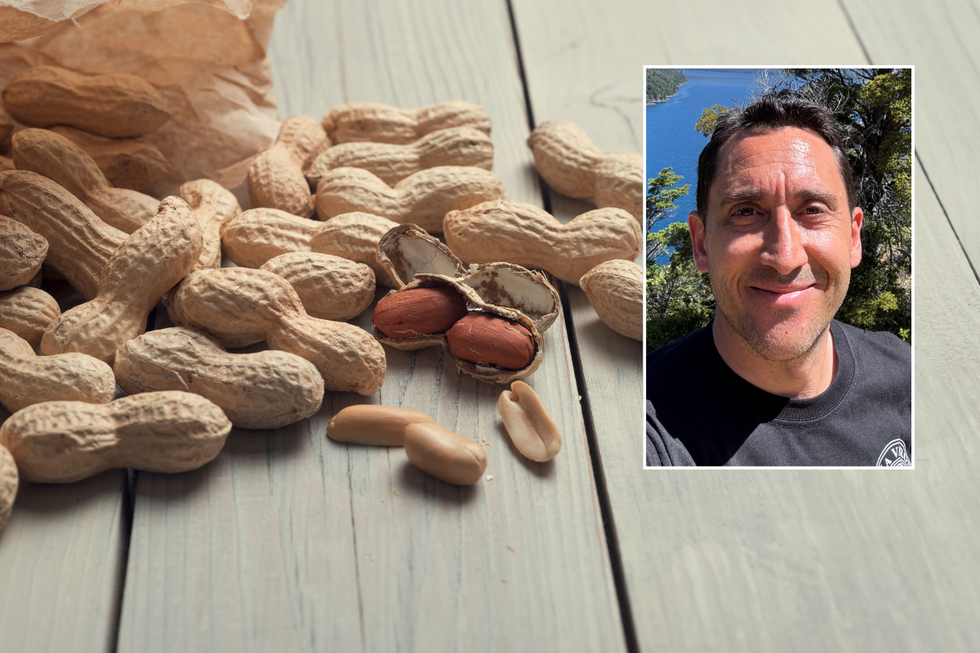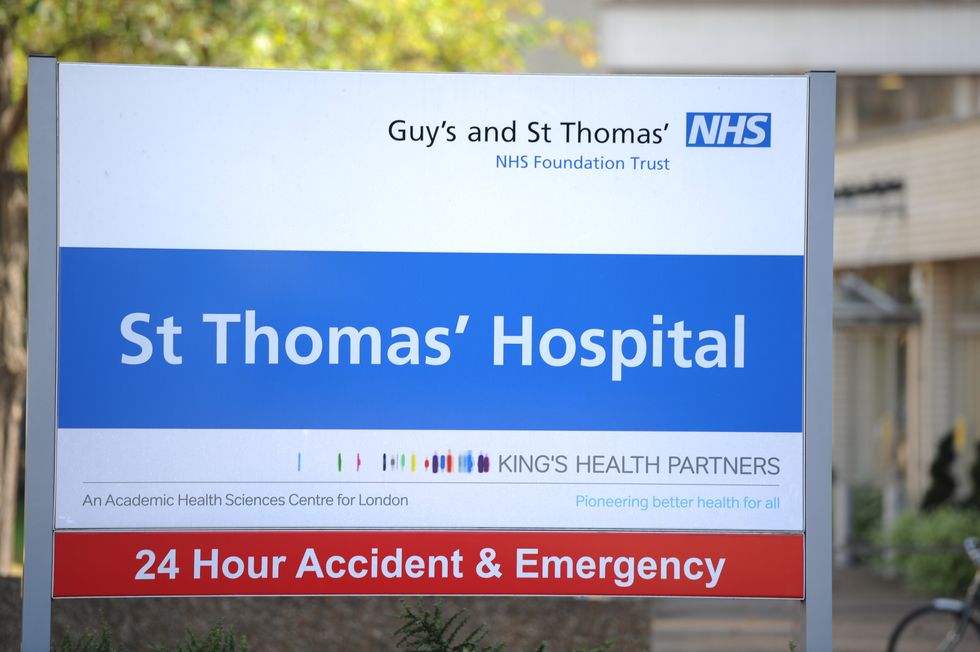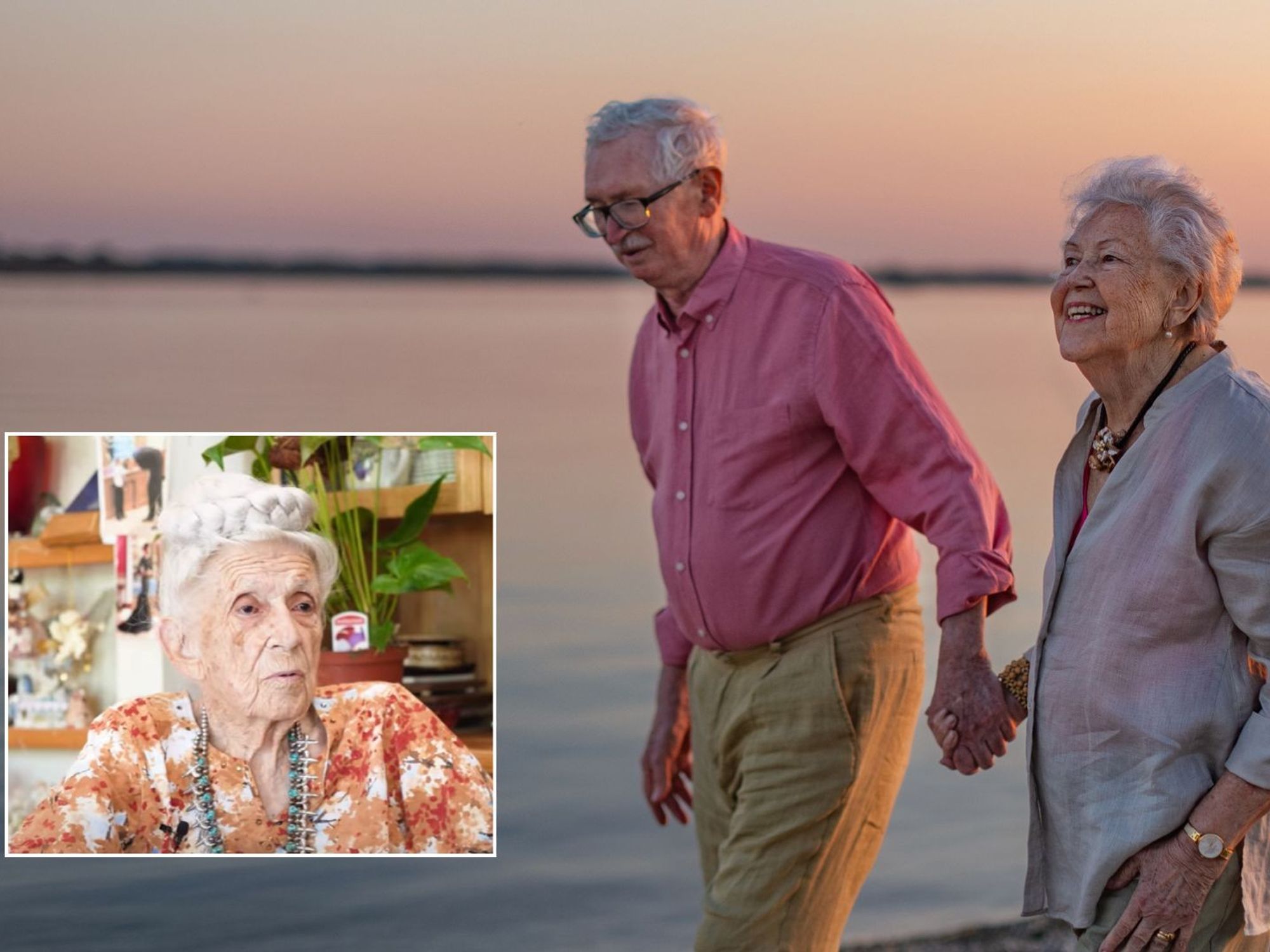GB News science & health editor, Lucy Johnston, shuts down claims that a mystery HMPV outbreak could lead to another pandemic.
Richard Lassiter was part of the study by King's College London and Guy's and St Thomas' NHS Foundation Trust
Don't Miss
Most Read
Trending on GB News
A man with a life-threatening peanut allergy now eats four peanuts every morning as part of his daily routine following a "life-changing" medical trial.
Richard Lassiter, 44, from Beckenham in South London, has been hospitalised multiple times after accidentally consuming peanuts.
His allergy was so severe that even trace amounts could trigger potentially fatal reactions.
Now, thanks to a groundbreaking study by researchers at King's College London and Guy's and St Thomas' NHS Foundation Trust, he consumes peanuts daily, describing it as "taking his medicine".

Richard Lassiter has praised the study
Getty/PA
Lassiter recalled a "terrifying" episode during a holiday in Chile with his wife in 2018.
"I had a really severe episode on our once-in-a-lifetime holiday to Chile with my wife in 2018 that changed everything," he said.
He was given food containing peanuts "1,000 miles from anywhere" and required emergency treatment. On another occasion in London, he accidentally consumed peanuts hidden under ice cream.
"By the time I was in St Thomas's it was pretty bad – I remember I'd swollen up to a huge size and asking the nurse if I was going to make it."
LATEST DEVELOPMENTS:

The study took place at the St Thomas' Hospital Trust
PAThe peanut desensitisation trial, also known as oral immunotherapy, involved 18 adults with typical peanut allergies. Participants began by consuming tiny amounts of peanut flour at home, starting with just 0.5 per cent to one per cent of a whole peanut.
Doses were gradually increased over time until participants could tolerate 50-100mg of peanut protein. They then progressed to eating whole peanuts, peanut butter or peanut products.
By the end of the study, two-thirds of participants were able to eat the equivalent of five peanuts without experiencing an allergic reaction.
Lassiter now consumes four peanuts daily as part of his routine, saying: "I got to the point where I was having a total of four peanuts a day, which I still take to this day...This morning I had my four peanuts after I ate my breakfast, as if it was some sort of a teaspoon of medicine."
The treatment has transformed his life dramatically.
He added: "It's been life-changing for me – it's increased my confidence immeasurably... I feel much calmer, much happier and really excited about the ability to do all of these things in the future."
Professor Stephen Till, chief investigator of the study, highlighted the significant gap in treatment options for adults with peanut allergies.
"The problem is that once I see adult patients in my clinic, there's been nothing that we've been able to do to them," he explained.
"We were really pleased because we got the evidence that we hoped we would get," Professor Till said.
He stressed that such treatments "definitely must be done under very close clinical supervision" and noted that larger studies are needed to confirm the findings.








